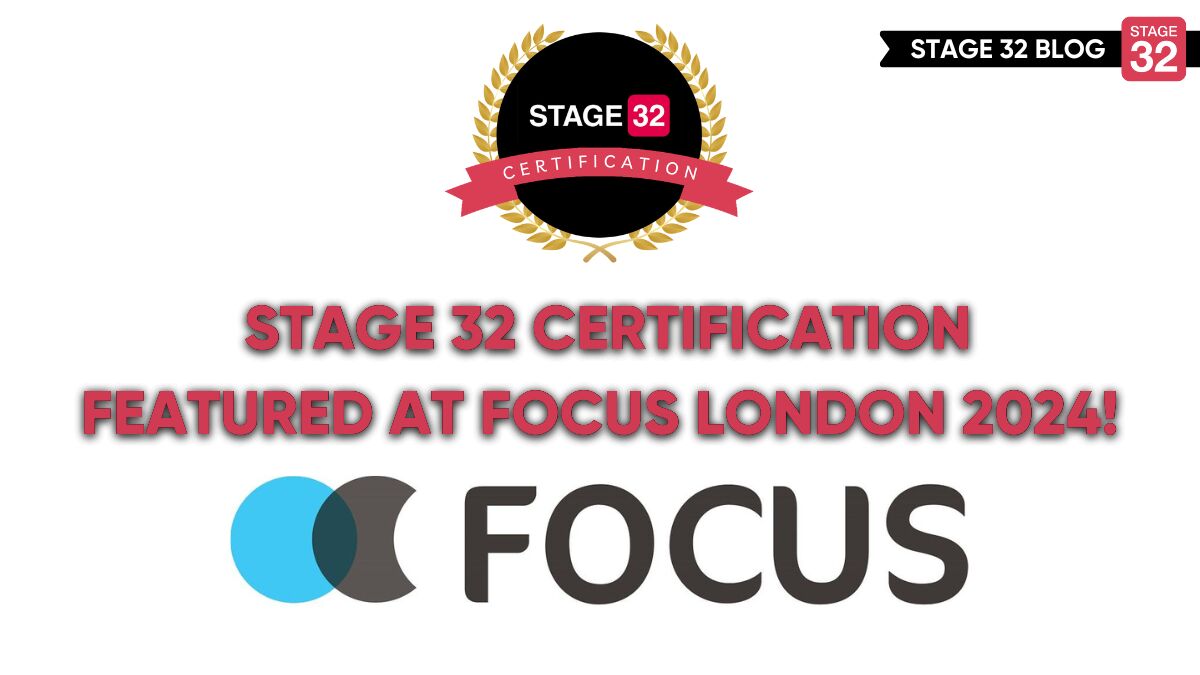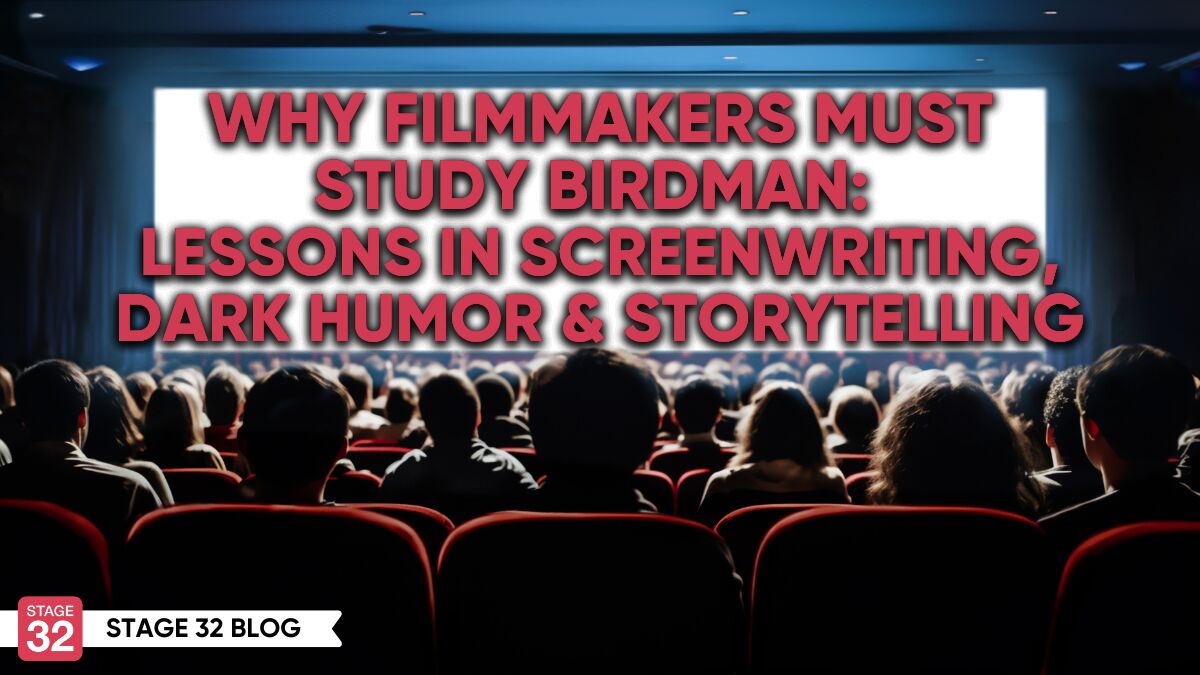Why Filmmakers Must Study Birdman: Lessons in Screenwriting, Dark Humor, and Storytelling
A wonderful piece of ART – that’s the only way I can describe Birdman or (The Unexpected Virtue of Ignorance). But who am I to judge? This movie doesn’t need my validation; it has 193 wins and 484 nominations to its name, including 4 Academy Awards, such as Best Picture and Best Director. Made with a modest budget of $18 million, it grossed over $103 million worldwide, proving that daring, experimental cinema can resonate with audiences and critics alike.
But here’s the catch: this isn’t your everyday popcorn flick. Unlike mainstream blockbusters, Birdman demands active engagement and rewards creators, thinkers, and dreamers. It’s a film that challenges the audience, offering layers of meaning for those willing to explore them.
As someone passionate about storytelling, here’s what I’ve learned from Birdman and why it’s a masterclass in filmmaking.

Characters and Dialogue: Flawed, Raw, and Brutally Honest
Let’s talk about Riggan Thomson, played by Michael Keaton. He’s an ex-Hollywood superstar trying to reclaim relevance by staging a Broadway play. But Riggan isn’t just battling his career’s decline; he’s also waging war against the loud, derisive voice of his alter ego: Birdman.
In one unforgettable scene, Riggan confronts this voice in his head:
“You’re not real! You’re a mental formation in my head!”
Birdman fires back, mocking his insecurities:
“You’re pathetic. You’re a joke. The whole world’s laughing at you.”
This verbal tug-of-war between despair and wit is as heartbreaking as it is hilarious. It’s Riggan’s ego personified, simultaneously tearing him down and driving him forward.
During a heated rehearsal, Mike Shiner (Edward Norton) cuts Riggan down with a brutal truth:
“Let’s face it. This play isn’t about art. It’s about you, trying to finally feel relevant again. It’s pathetic.”
Mike’s words sting because they’re true, yet they’re also laced with irony—Mike, the self-proclaimed “pure artist,” is just as flawed as Riggan.
These moments give us an unfiltered look into Riggan’s psyche while exposing the insecurities of everyone around him. His vulnerability, self-loathing, and contradictions make him painfully relatable. The biting dialogue serves to reveal hidden truths and drive the story forward.
Takeaway: Create characters with layers and contradictions. Let their dialogue be sharp, truthful, and emotionally charged to make them unforgettable.

Pacing and Flow: A Relentless March Through Chaos
One of the most striking aspects of Birdman is its illusion of being one continuous shot. Achieved through ingenious cinematography and seamless editing, this choice immerses the viewer in Riggan’s chaotic world. The camera follows him everywhere—from the stage to the dressing room to Times Square in his underwear—creating an unrelenting pace that mirrors his emotional state.
In a standout sequence, Riggan locks himself out of the theater mid-performance. Clad only in his underwear, he’s forced to march through a packed Times Square, dodging selfies and laughter, as his humiliation goes viral. This absurd moment of public shame somehow becomes his biggest PR win.
The film’s flow blurs the line between reality and fantasy. After a tense argument with his daughter, Riggan steps onto the roof of the theater and leaps… only to soar gracefully over the city. Or does he? The camera follows his flight, a surreal escape from his torment. When he lands outside the theater, it’s with a thud—a cab driver shouting after him for unpaid fare. These moments pull us deeper into Riggan’s unraveling mind, balancing magic and mundanity.
Takeaway: Use pacing and perspective to reflect your story’s emotional intensity. Blur the line between reality and fantasy to keep your audience engaged.

Dark Humor: The Sweet Spot Between Tragedy and Comedy
In the play’s climactic moment, Riggan’s character shoots himself. But Riggan, ever the method actor, uses a real gun. Instead of dying, he botches the attempt and ends up in the hospital… hailed as a genius.
This moment is hilariously grim. Riggan’s desperation for relevance drives him to literal self-destruction, yet this act finally earns him the validation he’s craved. It’s irony at its finest.
Birdman constantly finds the sweet spot between tragedy and comedy. Riggan’s darkest moments—like walking through Times Square in his underwear or surviving a suicide attempt—are the very moments that define his journey.
Takeaway: Tragedy and comedy are two sides of the same coin. Lean into life’s absurdities to uncover its bittersweet truths.
Final Thoughts: Why You Should Study Birdman
Birdman isn’t just a movie; it’s an experience. It’s a chaotic, unflinching exploration of ego, relevance, and the creative process. For filmmakers and storytellers, it’s a goldmine of lessons:
- Build characters who are messy, flawed, and deeply human.
- Use pacing to mirror your story’s emotional intensity.
- Write dialogue that cuts deep and reveals hidden truths.
- Blur the line between reality and fantasy to keep your audience engaged.
- Find humor in tragedy, and tragedy in humor.
Whether you’re a filmmaker or someone who loves a good story, Birdman is a masterclass in pushing boundaries. Watch it. Study it. Let it inspire you.
Let's hear your thoughts in the comments below!
Got an idea for a post? Or have you collaborated with Stage 32 members to create a project? We'd love to hear about it. Email Ashley at blog@stage32.com and let's get your post published!
Please help support your fellow Stage 32ers by sharing this on social. Check out the social media buttons at the top to share on Instagram @stage32 Twitter @stage32 Facebook @stage32 and LinkedIn @stage-32
| Stage 32 Certification at Focus London 2024! |
| Mapping Out a Multi-Season Story Part 2: Where Do You Get Ideas For This Much Story? |
Search Stage 32 Blog
There are now 4038 blog posts for you to enjoy. Search them all by tags below.
Acting, Advice, Cinematography, Coffee & Content, Composing, Contests, Distribution, Featured, Filmmaking, Financing, Inspirational, Networking, Producing, Screenwriting, Success Stories, Tips, Trending,Relevant Tags
Recommended Articles

Stage 32 + Mark Creative Management Partner For Exclusive Opportunity for Writers to Land Representation!

Insider Intel: The Studio War & The Rise of Indies

Insider Intel: 2026 Predictions

How Stage 32 Script Services Make You A Better Writer
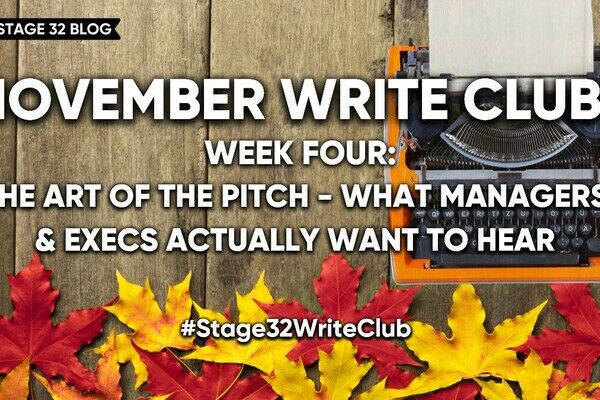
November Write Club Week 4: The Art of the Pitch- What Managers & Execs Actually Want to Hear

Don't Let the Momentum of November Write Club Die: How to Stay Active Into 2026 & Beyond!
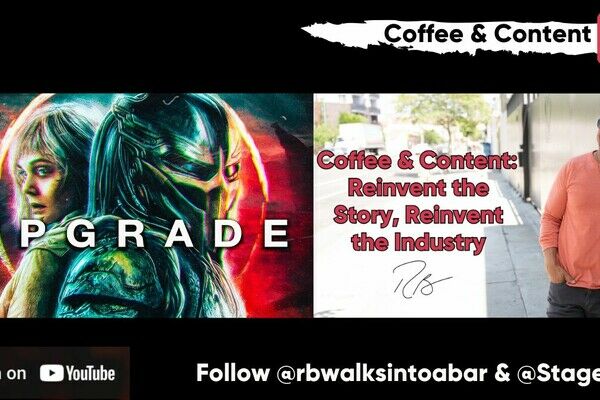
Coffee & Content: Reinvent the Story, Reinvent the Industry
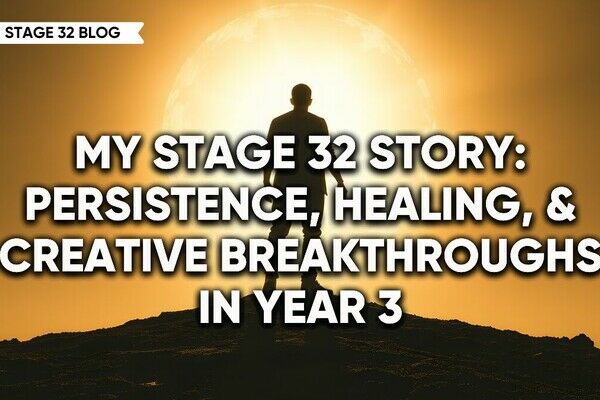
My Stage 32 Story: Persistence, Healing, & Creative Breakthroughs in Year 3

How Modern Franchises Became Our New Religion




